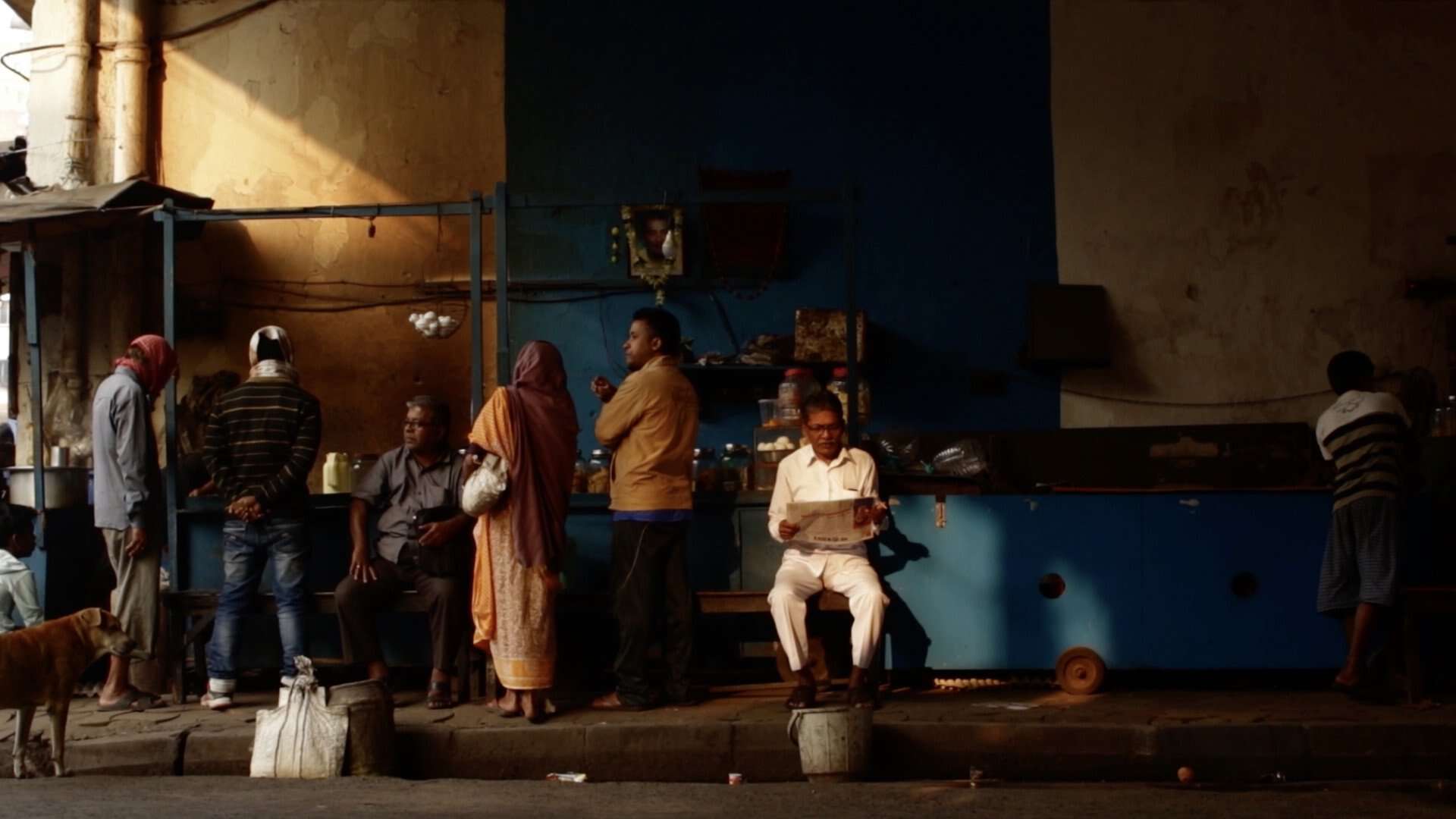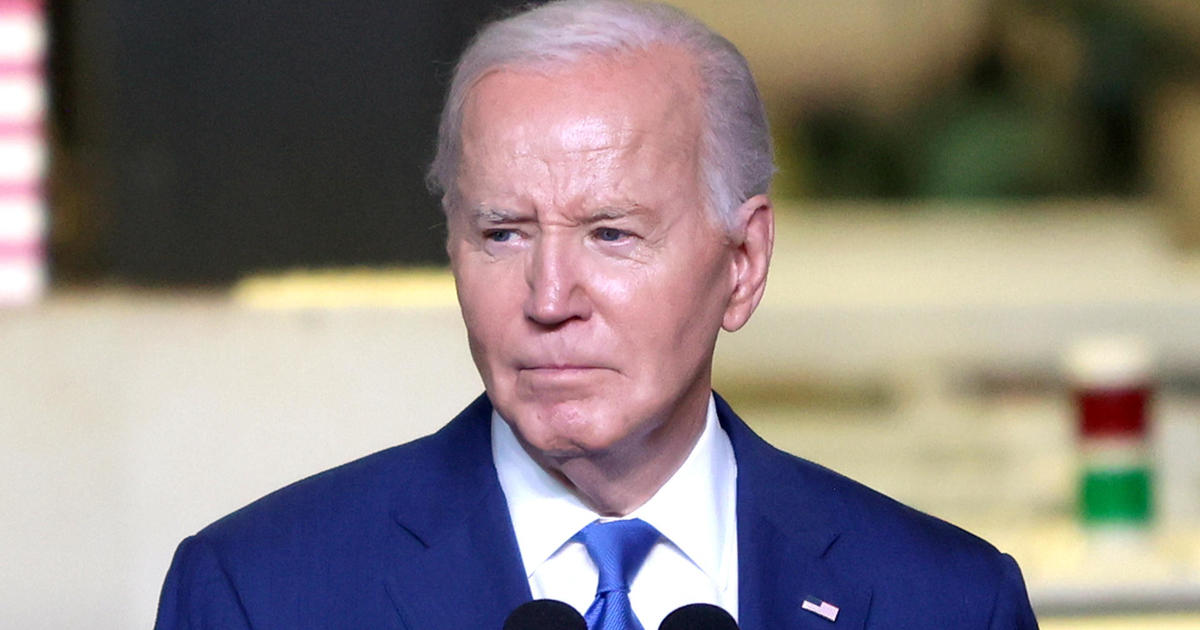Entertainment
A guide to everyone Taylor Swift sings about in 'Tortured Poets Department' — and their reactions

Taylor Swift didn’t hold back on calling everyone out on her newest album, “The Tortured Poets Department,” and the reactions are rolling in.
The surprise double album was released in two parts on April 19, giving exuberant Swifties plenty of material to analyze — including multiple celebrity call-outs.
Kim Kardashian
(Susan Walsh / Associated Press)
Swift and Kardashian have a long-standing feud, which started with Swift and Ye back in the day and goes back to Kimye’s infamous doctored phone call, which appeared to prove Taylor had given consent for a nude wax figure of her to appear in Kanye’s “Famous” music video. TLDR: The call was edited, but Swift was ripped to shreds online anyway, an experience that inspired her now legendary “Reputation” album.
Swift isn’t quite letting Kardashian off the hook, and “TTPD’s” “thanK you aIMee” pointedly had the letters of Kardashian’s first name capitalized in the title.
“And so I changed your name and any real defining clues / And one day, your kid comes home singin’ / A song that only us two is gonna know is about you,” Taylor wrote, apparently referencing daughter North West’s TikToks that have featured her songs in the past.
Kardashian didn’t respond directly to the taunt, but she did post a throwback photo with Swift’s ex-best friend Karlie Kloss on mutual pal Derek Blasberg’s birthday. Whether it was a coincidence is anyone’s guess.
Matty Healy

(Paul R. Giunta / Invision / Associated Press)
The 1975 frontman was the surprise “TTPD” guest star. He and the “Bejeweled” singer appeared to have had a short fling following her split from Joe Alwyn, but the lyrics in “TTPD” have led to speculation that the two were involved for far longer.
The title track is particularly damning: “You left your typewriter at my apartment,” Swift sings, referencing Healy’s apparent penchant for the old-school device. (“Who uses typewriters anyway?” she later asks.)
Swift goes on to call him a “tattooed golden retriever” before describing his smoking habits.
“But you tell Lucy you’d kill yourself if I ever leave / And I had said that to Jack about you so I felt seen,” she continues, referencing Boygenius member Lucy Dacus, who performed with Swift on the Eras tour, and her producer and bestie Jack Antonoff. Sounds super healthy and normal!
And all that’s from just one song. “But Daddy I Love Him,” “Fresh Out the Slammer,” “Guilty as Sin?,” “I Can Fix Him (No Really I Can)” and “The Smallest Man Who Ever Lived” all pile on the blame.
Healy responded coolly on Wednesday. “I haven’t really listened to that much of it,” the singer told paparazzi, “but I’m sure it’s good.”
His tone marks a stark difference from when he called dating Swift “emasculating.”
His mom, Denise Welch, was similarly unbothered, saying on British talk show “Loose Women” that she “wasn’t aware [Swift] had an album out at all.”
Unlikely, considering “TTPD” just became Spotify’s most-streamed album in a single day, but whatever.
Joe Alwyn

(Evan Agostini / Invision / Associated Press)
Just as fans predicted, Taylor’s ex-boyfriend of six years was spared little sympathy. Even the album title is supposedly a reference to the name of a group chat between the actor, Paul Mescal and Andrew Scott, called the “Tortured Man Club.”
“So Long, London” is Taylor’s most obvious hit at Alwyn, considering he inspired the track “London Boy” on her 2019 album “Lover.”
“I didn’t opt in to be your odd man out,” she sings about the end of their relationship. “I founded the club she’s heard great things about / I left all I knew, you left me at the house by the Heath.”
It’s clear Alwyn promised Swift a lot more than what he gave her. In “LOML” she laments how “You s—-talked me under the table / Talkin’ rings and talkin’ cradles / I wish I could unrecall / How we almost had it all.”
The marriage references don’t stop. In “imgonnagetyouback,” Swift tries to decide “whether I’m gonna be your wife or gonna smash up your bike.”
Fans have also latched onto a line in “Fortnight,” which features Post Malone, as proof that Alwyn wasn’t always faithful to Swift. “My husband is cheating, I wanna kill him,” Swift sings.
According to a source, Alwyn “has listened to the album, and he is slightly disappointed, but not surprised at all.” Maybe he’s upset about Healy stealing his spotlight?
Travis Kelce

(Mark Brown / Getty Images )
Of course, Swift couldn’t leave current beau Kelce behind. The Kansas City Chiefs tight end is the apparent subject of “The Alchemy” and “So High School,” both of which are riddled with football metaphors.
“The greatest in the league / Where’s the trophy? / He just comes running over to me,” she sings in “The Alchemy,” referencing the couple’s viral kiss after Kelce‘s team won the Super Bowl in February.
“You know how to ball, I know Aristotle,” she added in “So High School.” “You knew what you wanted and, boy, you got her,” she concludes in the song, alluding to how Kelce pursued her after seeing her perform on the Eras tour.
“I have heard some of it, yes, and it is unbelievable,” Kelce said at a sports event in February, ahead of the album’s release. “I can’t wait for her to shake up the world when it finally drops.”
He’s “very proud of her,” a source told E! News after the record dropped earlier this month.
“Travis is so supportive of the entire album,” the source continued, “and loves that he is a part of Taylor’s story.”
Kelce’s mom, Donna, even chimed in the conversation with her own praise. “I listened to the whole album, and I listened to it all morning long when it was released,” she told People this week.
“I was just very impressed,” she said. “She is a very talented woman, and I think it is probably her best work.”
Charlie Puth

(Jordan Strauss / Invision / Associated Press)
Finally, in a seemingly random shout-out on the title track, Swift sings, “You smokеd, then ate seven bars of chocolate / We declared Charlie Puth should be a bigger artist.”
Fans rushed into a frenzy online, flooding the “We Don’t Talk Anymore” singer’s social media with notifications about his name drop.
“literally honored lol,” he replied in the comments of a now-deleted Instagram post of the song.

Movie Reviews
‘Kingdom of the Planet of the Apes’ and ‘Monster’ movie reviews

Kingdom of the Planet of the Apes is purportedly the first in another trilogy of films that will show the evolution of ape society from its current hunter-gatherer phase and develop the character of Noa. As such, director Wes Ball – anticipating a few years’ lucrative employment – has taken his time laying the foundations in that deliberate manner familiar from other Hollywood franchises. This makes Kingdom a slightly ponderous proposition that may satisfy fans who have dutifully followed the previous films, but will do little for those seeking mind-numbing entertainment on a Friday night.
Those areas where the films keep advancing are costume, make-up and special effects, which have rendered the ape impersonation almost perfect. This extends to skillful mimickry of the way various apes move. It’s only when we get up close that we catch a glimpse of the actor behind the elaborate façade. Yet this degree of perfection only tends to throw the leaden nature of the narrative into sharper relief. As the story dragged on and on, I began to feel nostalgic for those days when the movies would just put a guy in a gorilla suit and tell him to start beating his chest.
Kingdom of the Planet of the Apes
Directed by Wes Ball
Written by Josh Friedman, Rick Jaffa, Amanda Silver
Starring Owen Teague, Freya Allen, Peter Macon, Kevin Durand, Eka Darville, Lydia Peckham, Sara Wiseman, Travis Jeffery, William H. Macy, Neil Sandilands
USA, M, 145 mins
Monster
Although Kingdom of the Planet of the Apes is set to be a blockbuster, Monster is one of those critically acclaimed films that can expect to enjoy a modest success at the box office.
Director Hirokazu Koreeda is celebrated for his portrayals of families – big, small, sometimes barely recognisable as such. This time, he focuses on a family that consists of only a single mother, Saori Mugino (Sakura Ando), and her 11-year-old son, Minato (Soya Kurokawa), living in a provincial Japanese city. As they sit together, talking to a photograph of Minato’s dead father, we can see how closely they are bonded. They watch from their apartment window as a downtown building that contains a nightclub goes up in flames.
Yori Hoshikawa (Hinata Hiiragi) and Minato (Soya Kurokawa). Suenaga Makoto
“If a pig’s brain is put into a human head,” Minato asks his mother, “is that person a human or an animal?” It sounds silly, but this “pig brain” proposition will recur throughout the film, attributed to several different characters.
The mother-son relationship develops cracks when Minato starts acting strangely, snipping away at his own hair, coming home from school with only one shoe. One evening he doesn’t come home at all, being eventually located in an old train tunnel hidden in the nearby woods. When he sustains an injury to his ear, Saori heads to his school to see what’s going on. Minato has laid the blame on his teacher, Mr Hori (Eita Nagayama), who has also allegedly accused the boy of having a pig’s brain.
When Saori confronts the teachers, especially the principal, Mrs Fushimi (Yuko Tanaka), they become a caricature of Japanese shame and conformity, bowing deeply, apologising and promising to do better. Saori is rightly incensed by this behaviour, which does nothing to solve the mystery of her son’s strange behaviour or confirm that the awkward Mr Hori did the things he was accused of doing. The principal, who has recently lost her grandson in a terrible accident, seems almost catatonic. The teachers apologise reflexively, with no explanations. We feel as bewildered as Saori, especially when it seems Mr Hori is continuing to teach as usual, with no action being taken.
Koreeda resolves the mystery by degrees, jumping back and forth in time to show us the origins of the things we can’t explain. These jumps are handled so seamlessly it takes a few seconds each time for us to realise where we are. In this film, nothing is quite what it seems. The crucial figure may not be Mr Hori, but Minato’s classmate, Yori Hoshikawa (Hinata Hiiragi), a small boy who is disliked by most of the class because of his eccentric behaviour. It’s Yori who claims constantly that he has a pig’s brain, and who leads Minato to the tunnel in the woods, where he has a hideout in an old train carriage. Yori is unhappy at home, being raised by a beer-swilling father who is usually at work or in a bar.
It begins to seem as if angelic-looking Yori is a classic bad seed, and for Minato, a bad influence. Yori keeps confessing that he’s a monster. As he carries a stove lighting device with him and roams around at night, it seems likely he had a hand in the fire that burned the hostess club his father frequented. Look closely and one can see the club was called Gilles de Rais, named after an infamous French child murderer of the Middle Ages.

Single mum Saori Mugino (Sakura Ando) with her 11-year-old son, Minato.
While we are trying to understand the relationship between Minato and Yori, Mr Hori is being persecuted by reporters and slowly driven mad. As we flash back and forth between past and present, Hori’s true role in the story begins to emerge.
Koreeda keeps us wondering about who, if anyone, is the monster. With each part of the puzzle falling into place, the picture keeps changing. It’s not even clear what being a “monster” might mean.
One noteworthy aspect of the film is the music, which was the final score by Ryuichi Sakamoto (1952-2023), best known for his haunting themes in Oshima’s Merry Christmas Mr Lawrence (1983) and Bertolucci’s The Last Emperor (1987). It’s a typically subtle score, hardly more than a few touches of the piano where a scene requires a little emphasis.
Monster won the Queer Palm, at last year’s Cannes Film Festival, which is a somewhat dubious honour in that it narrows the way we read the relationship between two 11-year-old boys. Minato and Yori are only on the cusp of puberty and whatever the nature of their friendship, it would be ridiculous to label it “queer”, in the way that word is now used to denote self-conscious gender non-conformity. Surely, it’s not unusual for children of that age to become passionately attached to their friends, often at the expense of their families. Are they considered “monsters” because of the closeness of a relationship that even makes Minato feel uncomfortable?
Koreeda makes no moral pronouncements, showing huge sympathy for all his characters, from the boys to Saori, Hori and the principal. Everyone has a hard time in this story, but they are given ample opportunity to declare their innocence to the audience, and the ending is not at all what one might expect. Perhaps the monster is no more than a red herring.
Monster
Directed by Hirokazu Koreeda
Written by Yuji Sakamoto
Starring Sakura Ando, Eita Nagayama, Soya Kurokawa, Hinata Hiragi, Yuko Tanaka, Akihiro Kakuta, Mitsuki Takahata, Shido Nakamura
Japan, M, 127 mins
Entertainment
Bette Midler says 'Bette' sitcom was a 'big mistake' — and so was not suing Lindsay Lohan

The way she tells it, Bette Midler’s short-lived sitcom “Bette” was more like a comedy of errors.
The singer-actor’s semiautobiographical CBS show premiered in 2000 and was canceled 18 episodes into its 22-episode order. Midler dissected her self-declared “big flop” Tuesday on David Duchovny’s podcast, “Fail Better.”
“I did a television show, ‘Bette.’ Does it get any more generic than that?” the “Hocus Pocus” star joked. “A big, big, big mistake.”
Midler cited a number of reasons for the show’s failure, including her poor understanding of serial television production. She’ had worked extensively in theater and film, she said, but sitcoms were uncharted territory.
“Filming a show a week is warp speed for Midler, more accustomed to the studious pace of a movie shoot,” The Times’ Carla Hall wrote in an October 2000 story about her and the show. “The sitcom films on Friday nights before an audience at the Culver City studios starting around 6:30 p.m. and ending in the wee hours, driven by Midler’s desire to get it as perfectly funny as she can.”
The week that story was reported, a coordinating producer won a pool the crew regularly held, where they put in $5 each and guessed when filming would wrap. The winning guess that week was 1:11 a.m., or nearly five hours to film a half-hour show.
“It was a form, a part of the media, I simply did not understand. I watched it. I appreciated it. I enjoyed it. But I didn’t know what it meant to make it,” Midler said on the podcast. “I didn’t realize what the pace was, and I didn’t understand what the hierarchy was, and nobody bothered to tell me.”
Midler was effectively sidelined on her own show.
“Because I was so green,” she said, “I didn’t know that I could have taken charge.”
That’s why, when a teenage Lindsay Lohan bailed out on “Bette” after the show’s pilot — despite being under contract — Midler didn’t fight it.
“If I had been in my right mind, or if I had known that part of my duties were to stand up and say, ‘This absolutely will not do, I’m going to sue,’ then I would have done that,” Midler said. “But I seem to have been cosseted in some way that I couldn’t get to the writers’ room. I couldn’t speak to the showrunner. I couldn’t make myself clear.”
Midler said she aired her grievances on “The Late Show With David Letterman” and was fired the next morning.
“Bette” aired Wednesdays against “Who Wants to Be a Millionaire,” which was then a juggernaut. In March 2001, The Times wrote about “Bette” getting canceled, saying, “The show, in which Midler plays a diva not unlike herself, has been a ratings disappointment since its debut, and Midler herself had hinted at various times that she found the experience of starring in her own television show arduous.”
“I said, ‘Oh, isn’t that fantastic?’” Midler told Duchovny. “I was so thrilled not to have to continue because I could not gather myself enough to make it work. I didn’t know how to make it work — for so many reasons, not least of which was that it was a completely different situation than I thought it was going to be.”
However, it seems not everyone disliked the sitcom.
Days before Midler’s podcast appearance, Lohan posted a throwback photo of herself and her former “Bette” co-star on Instagram.
“Had such a blast filming,” Lohan wrote in the caption, “with the incredible @bettemidler 💕 #tbt.”
Movie Reviews
Short Film Review: Abridged (2019) by Gaurav Puri

“No admissions in schools without money”
Gaurav is an independent filmmaker, a graduate in Film Direction & Screenplay Writing from the prestigious Satyajit Ray Film & Television Institute, India. His films, fiction, documentary and experimental, have been screened at various national and international film festivals. He has been a producer/member of a film collective, Lightcube, acclaimed as one of the leading resources for research and presentation of image-forms. His interests lie in audio-visual forms that intersect various folk-indigenous and modern-technological rationalities of storytelling. “Abridged” won the Golden Royal Bengal Tiger for Best National Documentary.
The film begins with the images of a construction site, while a voice from the news talks about the partial collapse of Majerhat Bridge in South Kolkata, and the disaster the event caused. Images of various parts of the city intermingle with each other, some of them somewhat artistic some of them more documentary-like, as the director seems to catch daily life in the area from the very early morning. Newspaper distributing, people sleeping on the street under bridges, trains passing under bridges and passerby all become part of the narrative.
As the film description states, “In recent years, Kolkata has witnessed the collapse of bridges Majerhat being the most recent. Set in the context of rapid urbanization, the film, titled “Abridged” examines the lives of various bridges, both over and under–how lives are organized around the bridge as a public space”. As such, the focus of the movie is on exactly that, describing everyday life in the city, and particularly the part of it that takes place under bridges.
It is impressive to watch people having set up shops under the constructions for example, as a shoe salesman highlights quite eloquently, while a number of them, seem to actually live beneath them. Schoolgirls playing with a dog, a mother combing her children’s hair, a chicken jumping in front of a motorcycle, cars parking are just some of the things that happen under bridges, in a testament on how life can take place anywhere, particularly in such crowded places as Kolkata.
The construction of bridges is also highlighted, through some very intriguing frames and close ups, with Puri and his cinematographer Sukhan Saar evidently being able to find beauty in the most surprising moments, not omitting however, to show that reality is also ugly, as the garbage and the corrosion of the constructions highlights. A man talking about how without money, people cannot even attend school adds a social comment in the narrative as does the aforementioned salesman who talks about how the government wants them to leave, but they have nowhere to go. In that same fashion, the signs on the street that state ‘buy less, built more” appear as rather ironic, also in a testament to the meaningful editing here by Pritam Mandal.
A song heard in the background as the night falls once more, while the bridge builders keep working, a couple of voyeuristic scenes, a child looking at the camera, a man setting up his “bed”, a woman who sheds light on the reasons people end up living under bridges, and a man with his goat herd passing the street, conclude the movie.
Gaurav Puri follows an observational approach, in a documentary though, that is exceptionally shot, with the documentation of reality moving hand to hand with visual beauty. This combination, and the presentation of a life that is very seldom depicted on cinema deems “Abridged” as an exquisite film, a testament to the prowess of all people involved in it.
-

 Politics1 week ago
Politics1 week agoHouse Republicans brace for spring legislative sprint with one less GOP vote
-

 World1 week ago
World1 week agoAt least four dead in US after dozens of tornadoes rip through Oklahoma
-

 Politics1 week ago
Politics1 week agoStefanik hits special counsel Jack Smith with ethics complaint, accuses him of election meddling
-

 Politics7 days ago
Politics7 days agoThe White House has a new curator. Donna Hayashi Smith is the first Asian American to hold the post
-

 Politics1 week ago
Politics1 week agoAnti-Trump DA's no-show at debate leaves challenger facing off against empty podium
-

 News1 week ago
News1 week agoAs student protesters get arrested, they risk being banned from campus too
-

 News1 week ago
News1 week agoVideo: Police Arrest Columbia Protesters Occupying Hamilton Hall
-

 World1 week ago
World1 week agoNine on trial in Germany over alleged far-right coup plot















